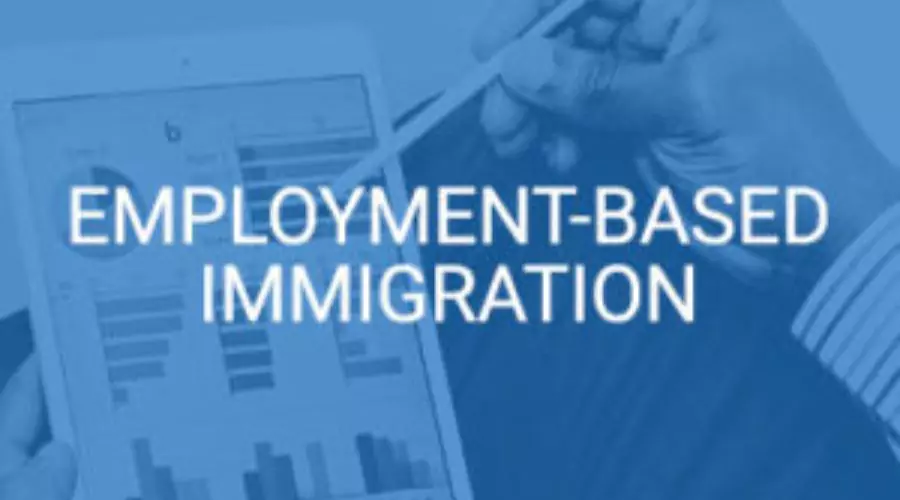Are you looking to immigrate to America? If yes, then you need to be prepared. US Immigration laws can be complex and hard to navigate. They also get updated quite frequently, which makes it even more important to stay in the loop. To ensure a hassle-free experience, you need to understand the US immigration laws properly and make sure that you meet the requirements. In this blog, we will help you explore the different types of US immigration laws that you need to get acquainted with. We will also discuss the different eligibility requirements for each type of immigration and how you can make the process smooth.
Immigrating to another country can seem daunting and life-changing, which is why legal websites like Nolo are there to help you find reliable resources, whether you are looking for information or legal help. Stick with us till the end to find out more about how Nolo can assist you in navigating the US immigration laws and the entire process. Without any further ado, let’s dive in!
What are the different types of US Immigration Laws?

For immigrants, US immigration laws are important. They determine whether they can come to the United States, stay in the United States, and eventually become US citizens. This makes it all the more important for them to become well-acquainted with all the US immigration laws. Here are some of the most common types of immigration that everyone should know about:
Family-based immigration

Family-based immigration is the most common way individuals can obtain lawful permanent residency, also known as a green card, in the United States. This type of immigration is based on a close familial relationship with a U.S. citizen or a lawful permanent resident. There are two main categories of family-based immigration in the United States:
- Immediate Relative Immigrants: This category includes the immediate relatives of U.S. citizens, which are not subject to any numerical limitations. Immediate relatives include:
- Spouses of U.S. citizens: This includes both opposite-sex and same-sex spouses.
- Unmarried children (under 21) of U.S. citizens: This includes both biological and adopted children.
- Parents of U.S. citizens: The minimum age requirement for the sponsoring U.S. citizen is 21 years old or older.
- Family Preference Immigrants: This category includes more distant family members of U.S. citizens and lawful permanent residents. There are numerical limitations on the number of visas available each year, leading to waiting periods for certain categories. Family preference immigrants include:
- Unmarried adult children (21 years or older) of U.S. citizens.
- Spouses, unmarried children (under 21), and unmarried adult children of lawful permanent residents.
- Married children of U.S. citizens, along with their spouses and minor children.
- Siblings of U.S. citizens, along with their spouses and minor children. The U.S. citizen petitioner must meet the minimum age requirement of 21 years old or older.
Employment-based immigration

Employment-based immigration in the United States allows foreign nationals to obtain lawful permanent residency, commonly known as a green card, based on their employment or job offer in the country. The U.S. government provides several categories or preference levels for employment-based immigration, each with its own requirements and limitations.
Employment-based immigration is categorised into five preference categories.
1: Priority Workers – This category is for individuals with extraordinary ability in sciences, arts, education, business, or athletics, outstanding professors or researchers, and multinational executives or managers.
2: Professionals with Advanced Degrees or Exceptional Ability – This category is for professionals holding advanced degrees (beyond a bachelor’s degree) or those with exceptional ability in the sciences, arts, or business. A labour certification from the U.S. Department of Labor (PERM) is generally required, except for those who can obtain a National Interest Waiver (NIW) by demonstrating their work is in the national interest of the United States.
3: Skilled Workers, Professionals, and Other Workers – This category is designated for individuals who fall into the following criteria: skilled workers with a minimum of two years of experience, professionals holding a bachelor’s degree, and other workers employed in positions that require less than two years of experience or training. A labour certification (PERM) is generally required.
4: Special Immigrants – This category is for certain special immigrant groups, like religious workers, employees of U.S. foreign service posts, and retired international organisation employees.
5: Immigrant Investors – This category is for foreign nationals who make a substantial investment in a new commercial enterprise that creates jobs for U.S. workers. The investment amount varies based on the location of the investment.
Refugee and asylum immigration

There are certain US immigration laws for refugees and asylum seekers who have been forced to flee their home countries due to war, violence, or persecution. Refugees are screened and approved by the U.S. government before they are allowed to come to the United States. Asylum seekers, too, go through a process to determine if they are eligible for asylum.
What are the eligibility criteria for each of the US immigration types?

The eligibility requirements for each type of immigration are often different.
- Family-based immigration: To be eligible for family-based immigration, you must have a qualifying family member who is already a U.S. citizen or lawful permanent resident (LPR). Generally, you have to prove that you have a bona fide relationship with your qualifying family member.
- Employment-based immigration: To be eligible for employment-based immigration, you must have a job offer from a U.S. employer that is willing to sponsor you for a visa. For this type, you will be required to have the skills and education that are required for the job offered.
- Refugee and asylum immigration: To be eligible for refugee or asylum immigration, you must be able to demonstrate or provide evidence that you are fleeing persecution or violence in your home country.
Important tips to make your immigration process easier

While the immigration process can be hard to navigate, there are some tips that you can use to make the whole cycle easier for you. Those tips include:
- Start the process early: The immigration process can take several months or even years, so it is important to start the process early and timely gather all of the required documentation.
- Do your research: There is a lot of information available about US immigration laws, so it is important to do your research and understand the requirements.
- Get help from an immigration attorney: If you are not sure about the immigration process, it is a good idea to get help from an immigration lawyer or attorney from agencies like Nolo that work dedicatedly to offer you a seamless experience. They will help you to understand the requirements for the type of visa or green card you are applying for, and they can also assist you in completing the application process correctly.
- Be organised: Keep all of your immigration documents organised and in a safe place. This will make it easier for you to find the documents when you need them.
- Be respectful: When you are interacting with immigration officials, be respectful and polite. This will help to create a positive impression, and it may also help to speed up the application process.
Conclusion
If you are considering immigrating to the United States, it is important to do your research. Before filling in the application, understand the requirements for the type of immigration you are interested in. The details shared above will help you decide which category you fall in a few tips to make the entire process easier for you. Nolo is an outstanding legal agency that offers brilliant resources and experienced attorneys to deal with all kinds of immigration matters. Browse through their website to learn more about US immigration laws. For more such updates, you can visit Celebzero.






